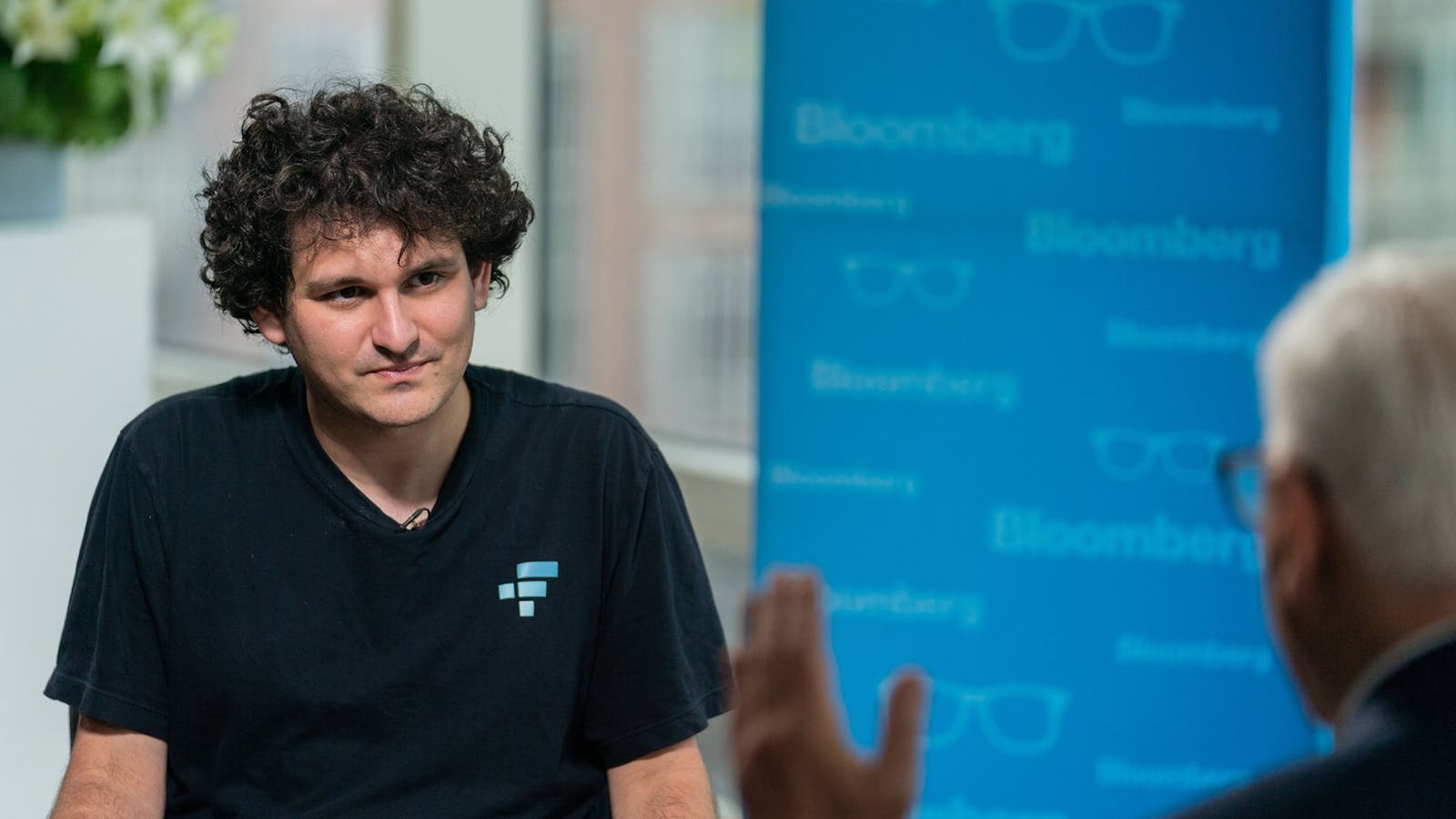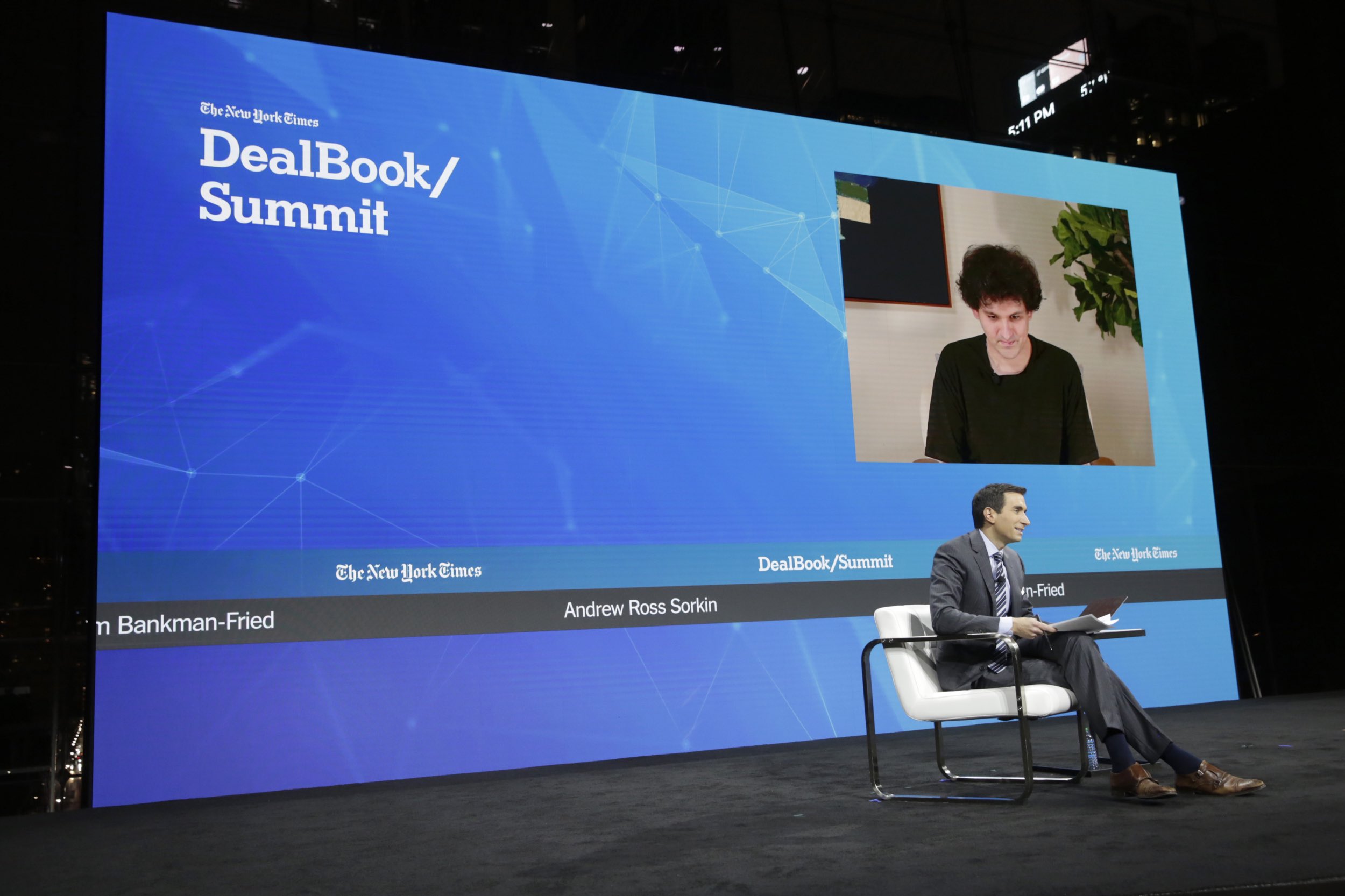Sam Bankman-Fried, the former CEO of FTX, remarked on Wednesday, “I’ve had a bad month.,” which may be the understatement of 2022.
In a highly anticipated interview with CNBC’s Andrew Ross Sorkin at the DealBook Summit, the former billionaire stated that he “didn’t do a good job” of maintaining his obligations to regulators, consumers, and investors.
Midway through November, Bankman-FTX Fried’s collapsed as a result of Coindesk reporting problems in the company’s balance records. On November 11, FTX filed for Chapter 11 bankruptcy protection in Delaware due to a suspected financial misappropriation that some have referred to as fraud.
I never attempted to defraud anyone, Bankman-Fried said. I thought it was a successful enterprise, therefore I was surprised by what transpired this month.
A former megadonor in the political realm, he stated he was down to one functional credit card and $100,000.

We failed miserably at risk, said Bankman-Fried. In retrospect, that feels very embarrassing.
According to Sorkin, Bankman-Fried came by video link from the Bahamas.
When questioned why he remained in the Bahamas, Bankman-Fried responded, “I’ve been [here] for the last year.”
Despite allegedly holding billions of dollars worth of cryptocurrency for trade, Alameda Research borrowed billions of dollars from other cryptocurrency exchanges, such as the now-defunct Voyager Digital and BlockFi Lending.
Bankman-Fried was questioned by Sorkin about if his exposure was what motivated him to actively hire rivals throughout the year.
By the middle of 2022, according to Bankman-Fried, Alameda should have paid off all of its credit lines with several borrowing desks.
But according to court documents, Alameda still owes BlockFi more than $670 million. On Monday, BlockFi formally for Chapter 11 bankruptcy protection in New Jersey.
The amount of Voyager exposure in Alameda was significantly higher. As of December 2021, Alameda owed Voyager more than $1 billion. Over the summer, Voyager was also given access to an emergency credit line by FTX and Alameda. As a result of the agreement, FTX became Voyager’s favored borrower, enabling it to restructure previous debts with the company.
What are your attorneys currently telling you? Do they mean to say that speaking now is a good idea? Sorkin enquired about the previous billionaire.
“No, they’re very much not.”
Bankman-Fried referred to the days following Coindesk’s November 2 disclosure of Alameda’s sizeable FTT position by saying, “The time that I really knew there was a problem was Nov. 6.”
At that moment, “Alameda had taken a huge hit” Bankman-Fried stated, “We were seeing a run on the bank start,”
A day after asserting that he was aware of the FTX problem, on November 7, Bankman-Fried tweeted that “assets were fine.”
Bankman-Fried said, “I was nervous [when] the Alameda balance sheet” was revealed by Coindesk, but he anticipated the harm would only be done to Alameda and not cause a “existential” catastrophe for FTX.
Bankman-Fried was questioned by Sorkin as to why they even had access to consumer funds.
Customer cash will “at all times stay with you and shall not transfer to FTX Trading,” according to FTX’s conditions.
Bankman-Fried dodged the question, claiming that although some of his clients had consented to lend money, he wasn’t aware of or in charge of the procedures.
According to court documents, the new management of the corporation claimed he had considerable, and at times exclusive, influence over the whole empire.
Bankman-Fried stated, “I wasn’t running Alameda, I didn’t know exactly what was going on, I didn’t know the size of their position,” Many of them are things I’ve learnt over the last month in the weeks before declaring bankruptcy, the speaker said.
Sorkin questioned Bankman-Fried about Alameda’s speculation on dubious cryptocurrencies by reading aloud a letter from an investor who lost his $2 million life savings.
Bankman-Fried asserted that “the U.S. platform is fully solvent and funded.” I think withdrawals could be made whole and opened up right now.
His frequent assertions that American consumers may receive compensation have not been backed up by any evidence.
Could I inquire about the drugs? said Sorkin.
Bankman-Fried said, ““It’s funny hearing this. I have half a glass of alcohol a year.”
The creator of FTX denied allegations of excessive drinking and drug usage, claiming that FTX events were more like “dinner parties” or “board games.”
According to Bankman-Fried, he was not aware of the Alameda exposure. He said that Alameda accounted for 40% of FTX’s business in 2019. Bankman-Fried asserted that by 2022, that percentage had decreased to 2%, which gave him confidence that FTX’s exposure had decreased.
Sorkin persisted in pressing Bankman-Fried to lend customer property. Bankman-Fried backed down.
Bankman-Fried said the reason that consumers were requested to send payments to an account in Alameda’s name rather than directly to FTX as “in 2018 FTX didn’t have bank accounts.”
By the time FTX sought bankruptcy protection, company had more than 200 bank accounts on every continent with a population.
Bankman-Fried has relatively infrequently interacted with the media. He sent a tweet to a Vox reporter saying, “F—- regulators.”
Before the bankruptcy, Bankman-Fried routinely spoke with authorities, including Gary Gensler, the chairman of the SEC.
He also tweeted, “I f—-ed up.”
FTX was previously heralded as the face of ethical cryptocurrency. Regulators and politicians looked to Bankman-Fried as the future of cryptocurrency regulation; he developed this image via appearances before Congress and furthered it through substantial political donations.
One of the biggest fundraisers to Democratic politicians, Bankman-Fried was already well-known. In a recent interview, he asserted that through so-called “dark pool” contributions, he made similarly significant donations to Republican groups.
Reporters “freak the f—- out” if they support Republicans, according to Bankman-Fried.
Follow us on Twitter and Instagram for rapid updates on breaking stories + giveaways!




